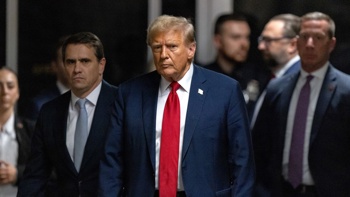New Zealand will be voting to support the United Nations Global Compact on Migration, Foreign Minister Winston Peters has announced.
The Government had been taking legal advice on the compact, which has been criticised by the National Party as threatening New Zealand's sovereign right to make its own immigration laws - even though it is not legally binding.
The global compact is the first intergovernmental agreement to cover international migration.
It is based on values of state sovereignty, responsibility-sharing, non-discrimination, and human rights, and is aimed at reducing the risks that migrants face while mitigating the factors that keep people from having sustainable livelihoods in their countries of origin.
Peters said that legal advice from Crown Law and the Ministry of Foreign Affairs and Trade confirmed that the compact was not legally binding, nor did it restrict New Zealand from setting its own migration policies.
Specifically the legal advice states:
- The compact is non-legally binding and does not create legal obligations
- It does not establish customary international law
- It does not give the legal instruments referred to in the text any binding effect that they do not already have in international law
- It reaffirms the sovereign right of states to determine national immigration policy and laws and that states have the sole authority to distinguish between regular and irregular migratory status
- It does not establish any new human rights law, nor create any new categories of migrants, nor establish a right to migrate
- It in no way restricts or curtails established human rights, including the right to freedom of expression
Peters said the advice was important because it was "debunking falsehoods or misguided perceptions".
"New Zealand is voting for the compact because we support greater efforts in controlling migration issues while also being confident our own sovereign decision-making isn't compromised."
Immigration expert Paul Spoonley told Larry Williams that he has mixed feelings about the compact, which he says is quite complex to understand.
He says that he likes that it encourages co-operation internationally and creating policies around tackling issues such as trafficking.
However, Spoonley says that though the compact is meant to be non-binding, some of the wording will require countries to commit to it.
"It implies a degree of compliance, and I think that's the concern that many have voiced that it compromises national promises."
Spoonley says there are concerns that it will lead to compromises and will encourage government's to criminalise certain behaviours, though he is not sure if that will happen.
He says that the majority of the United Nations has agreed to signing this deal.
Spoonley says that there has been strong opposition from several major players, such as the United States and Australia, who are concerned over national sovereignty.
He says most of these countries are known for having already taken a strong line against immigration.
"There are countries who are sceptical of the UN, who are sceptical of multilateralism. I think [some countries] are opting for a 'our country first and foremost' approach."
Spoonley says the United Nations has made it clear that this is not a direction, it is intended to be an invitation to co-operate.
The UN General Assembly vote on the compact is expected to begin at 4am NZ time tomorrow morning.
Take your Radio, Podcasts and Music with you









